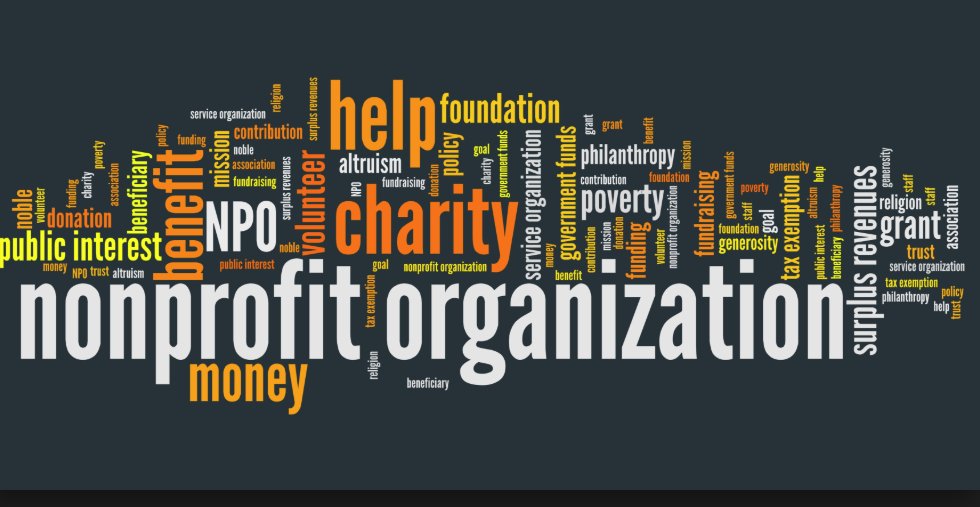Nonprofit Firm: Encouraging Organizations to Drive Social Adjustment
Discovering the Diverse Features and Responsibilities of a Nonprofit Firm in Attending To Social Issues and Supporting Change
Not-for-profit firms serve as essential representatives of change within society, tackling a myriad of social concerns with complex approaches. Their obligations extend past mere service provision; they involve in campaigning for, resource mobilization, and area outreach, usually acting as a bridge between necessary solutions and marginalized populations.
Recognizing Nonprofit Firm Roles
The efficiency of not-for-profit companies hinges on a clear understanding of their diverse roles within culture. Nonprofit firms frequently work as solution companies, providing necessary programs and sources to underserved populations.
Additionally, nonprofits play a necessary duty in campaigning for, elevating understanding and affecting policy choices that affect their communities. By involving in research study and public education and learning, these companies aid shape public discourse and promote informed decision-making - nonprofit agency. They likewise offer as platforms for volunteerism, setting in motion community members to add their time and abilities towards cumulative goals
Moreover, not-for-profit agencies typically function as conveners, uniting diverse stakeholders to foster partnership and collective influence. This collaborative method improves their ability to attend to facility social concerns properly. Recognizing these diverse functions is crucial for making the most of the possibility of not-for-profit companies in developing lasting social change and boosting total community wellness.
Neighborhood Interaction and Outreach
Reliable community interaction and outreach are basic elements of not-for-profit companies' strategies to build and foster links depend on within the neighborhoods they serve. These efforts concentrate on recognizing neighborhood requirements, promoting understanding of readily available resources, and encouraging involvement in programs made to deal with social problems. Not-for-profit organizations employ a range of methods to involve with area participants, such as workshops, informational sessions, and joint events.
Outreach efforts offer to strengthen relationships with diverse populaces, specifically marginalized teams who might encounter barriers to access. By utilizing culturally pertinent interaction approaches and leveraging regional collaborations, nonprofits can boost their presence and show their commitment to community empowerment. This method not only cultivates a feeling of belonging but likewise enhances the possibility of sustained engagement.
In addition, reliable area involvement exceeds plain involvement; it involves proactively listening to community participants' responses and including their insights into program advancement. This joint procedure guarantees that the services used are responsive, relevant, and tailored to the one-of-a-kind challenges faced by the community. Ultimately, fostering strong connections with involvement and outreach can cause more impactful treatments and a greater cumulative effort towards advertising favorable social modification.
Campaigning For and Policy Influence
Advocacy offers as a critical system for not-for-profit agencies to affect public law and drive systemic modification. By leveraging their knowledge and community insights, these organizations can successfully stand for marginalized populaces and address pressing social problems. Nonprofits participate in campaigning for through various approaches, consisting of public understanding projects, grassroots mobilization, coalition structure, and direct lobbying of policymakers.
With these efforts, not-for-profit agencies aim to form regulation and policy frameworks that straighten with their mission and the requirements of the areas they offer. They carry out research study, collect information, and share engaging stories to highlight the seriousness of certain problems, making certain that decision-makers are educated and inspired to act. This process not only magnifies the voices of those you could check here affected by social injustices yet additionally cultivates a much more comprehensive and fair policymaking setting.
Additionally, campaigning for initiatives usually seek to create lasting structural modifications, resolving origin instead than simply easing symptoms. By focusing on plan impact, nonprofit companies add to a more comprehensive understanding of social difficulties and advertise options that can bring about lasting renovations in social wellness. Inevitably, advocacy is fundamental to the transformative role nonprofits play in creating a just and equitable culture.
Fundraising and Resource Management
Nonprofit firms count on robust fundraising and resource administration methods to sustain their advocacy initiatives and maintain their missions. Efficient fundraising is vital for making certain the accessibility of funds necessary to apply programs and activities that deal with pressing social concerns. This procedure usually includes branching out earnings streams with gives, private contributions, company sponsorships, and fundraising occasions. By utilizing a multi-faceted strategy, nonprofits can mitigate the dangers connected with reliance on a solitary funding source.
Resource administration is equally vital, as it entails the strategic appropriation of both human and financial resources to maximize effect. Nonprofits need to establish spending plans that line up with their objectives while guaranteeing openness and accountability to stakeholders. This involves routine surveillance of expenditures and adjusting strategies as required to enhance source usage.

Partnership and Partnerships
While lots of companies seek their goals separately, partnership and collaborations can significantly enhance the performance of not-for-profit firms. By interacting with various visit their website other nonprofits, federal government entities, and personal market organizations, nonprofits can merge sources, share proficiency, and magnify their effect on social concerns. Collaborative initiatives often bring about cutting-edge services that might not be achievable independently, leveraging the toughness of each partner to attend to complicated obstacles.

Eventually, effective collaboration calls for clear communication, shared objectives, and mutual respect among partners. By accepting a participating strategy, nonprofit firms can develop sustainable networks that not only address prompt social issues yet also contribute to long-term systemic modification, promoting a much more equitable society. Through cooperation, nonprofits can thrive and optimize their possibility for significant influence.
Final Thought
Nonprofit agencies recommended you read offer as vital entities in promoting and addressing social problems change within neighborhoods. Eventually, the complex roles of nonprofit firms considerably contribute to the pursuit of social justice and the enhancement of community well-being.
Recognizing these complex roles is important for making the most of the potential of not-for-profit firms in developing sustainable social modification and boosting general neighborhood health.
Effective neighborhood involvement and outreach are essential components of nonprofit companies' methods to foster connections and construct count on within the neighborhoods they serve. By working together with other nonprofits, federal government entities, and personal sector organizations, nonprofits can merge resources, share proficiency, and enhance their influence on social problems.Not-for-profit companies serve as essential entities in addressing social problems and promoting modification within areas - nonprofit agency. Ultimately, the diverse roles of nonprofit agencies significantly add to the search of social justice and the renovation of neighborhood well-being